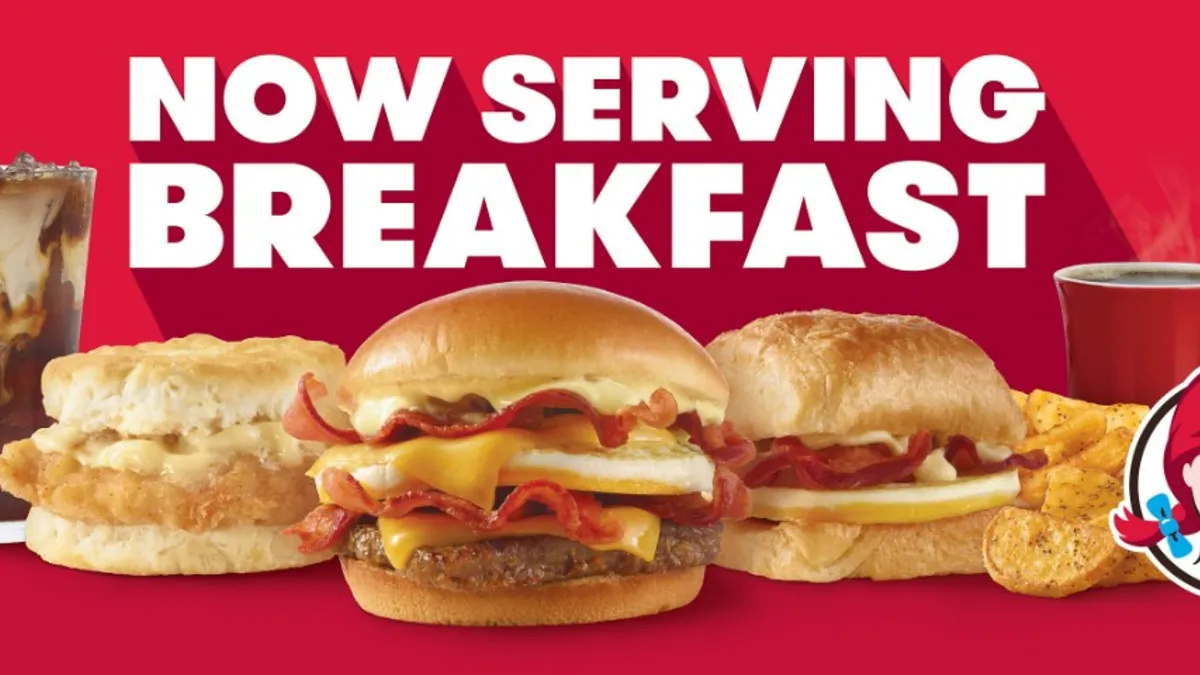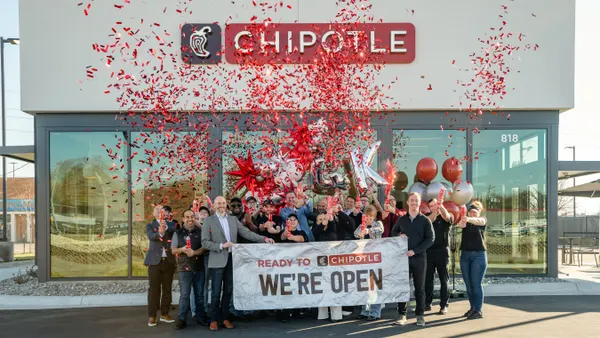Dive Brief:
- Wendy's breakfast made up 8% of U.S. systemwide sales, or roughly $192 million out of $2.4 billion, during Q2 2020, according to a company earnings release.
- The company remains committed to its breakfast daypart and will make an incremental company investment of up to $15 million to put toward the back half of the year, Todd Penegor, Wendy's president and CEO, said during the company's Wednesday earnings call.
- Wendy's U.S. same-store sales were down 4.4% during Q2 2020 compared to an increase of 1.3% quarter over quarter. Same-store sales improved each month from negative 14% in April to negative 1.9% in May. Same-store sales grew 5.1% in June and 8.2% in July.
Dive Insight:
The morning daypart has been the most challenged during the novel coronavirus pandemic, so Wendy's breakfast performance is a standout. Comparatively, McDonald's and Starbucks both noted declines in sales during this time of day, largely due to a decline of commuters.
After years of failed attempts at launching the morning daypart, Wendy's newest breakfast menu started strong out of the gate, making up 15% of sales during the first week of March when the menu was introduced. Franchisees also remain pleased with the daypart as it has provided a sales driver that they did not have before and overall customer satisfaction remains high, Penegor said.
"What we've seen as we advertise is it does help halo the rest of the day because we're really focusing on ... high quality messaging," he said.
Breakfast is driving a lot of transactions, but at a smaller average check. This is being offset during the rest of the day where transactions are a little bit weaker, but have higher average checks, Penegor said. Breakfast performance also continues to perform well into July, which is contributing to the same-store sales growth, he said.
And Wendy's sees even greater potential for the daypart.
Breakfast awareness levels remained strong at about 50% during Q2, Penegor said. However, because of the pandemic, Wendy's wasn't able to drive awareness to its full extent.
"We believe we have a huge opportunity to continue to drive that number higher," Penegor said. "That is why we have made the decision to add incremental dollars into advertising to further accelerate our breakfast business and capitalize on the significant momentum we have."
Wendy's plans to market breakfast more heavily during the last half of the year, especially as more people fall back into their daily routines, Penegor said. The $15 million investment is the equivalent of a big limited-time offer, which creates good pressure from a Wendy’s perspective, he said, adding that traditional advertising will be supplemented by social messaging. There also has been great word of mouth from customers who try the food and are pleased with the experience and talk about it on their social media channels, Penegor said.
"As mobility improves, coupled with our incremental investment in marketing, we believe this business has a ton of upside moving forward," Penegor said.
People are coming into breakfast a little later than a normal routine, but people are coming to the restaurants, Penegor said. Operational metrics also remain strong and restaurants continue to serve breakfast faster, Penegor said.
"We feel very confident about breakfast into the future with the start we've had, especially in the environment that we’re seeing today with the breakfast daypart being the hardest hit through the whole pandemic," Penegor said.












